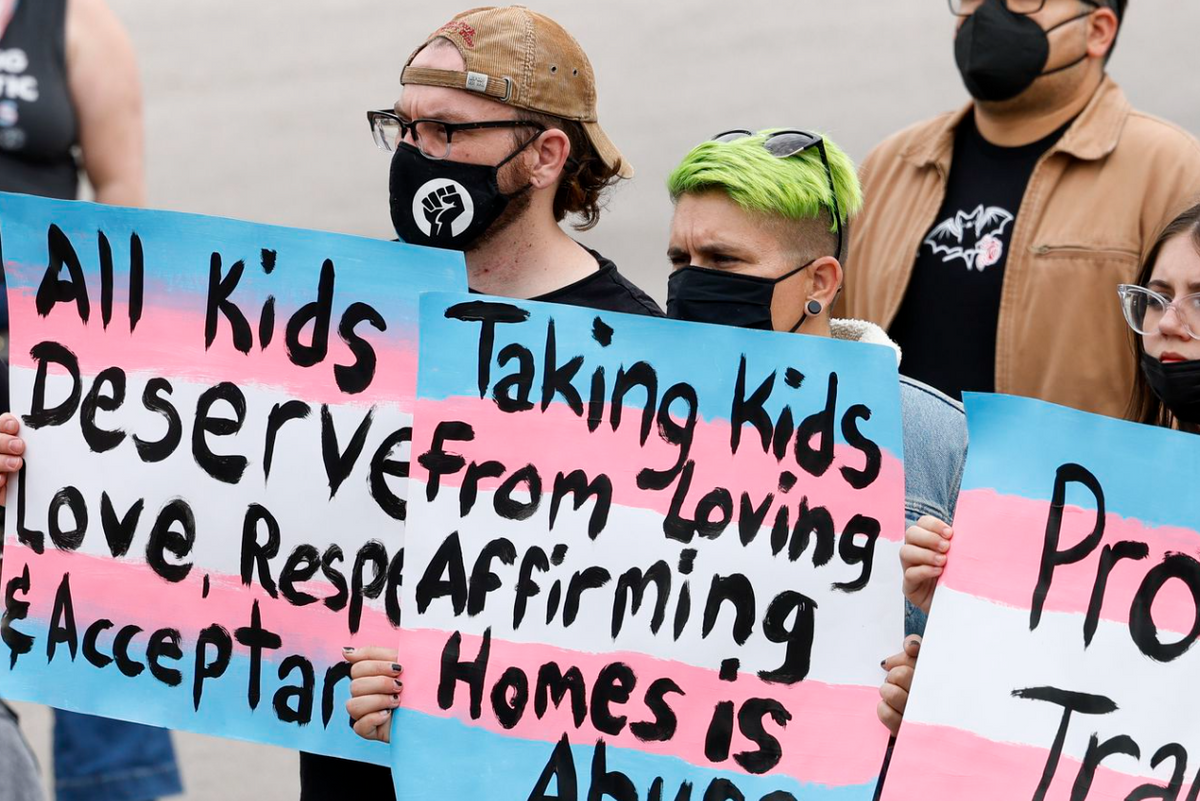
Gov. Greg Abbott of Texas recently used his executive authority to declare that puberty blockers, cross-sex hormones and surgeries for those under 18 meet the legal standard for child abuse in Texas, a ruling that authorized the Department of Family and Protective Services to investigate parents who had sought such treatment for their children. This is malice masquerading as policymaking.
Progressives, for their part, anathematize anyone who questions the new orthodoxy about gender. Not to go all kumbaya, but it just might be the case that both sides in these controversies have valid perspectives.
Progressives are right that transgender people used to be treated with some contempt. It's important to correct that. Everyone deserves to be treated with dignity. But conservatives are right that we've rushed into radical approaches to medicating children with gender dysphoria because the medical establishment and large parts of the opinion-shaping commentariat have treated this as a social justice matter rather than as a question of what's best for kids.
Over the past couple of decades, the percentage of kids identifying as transgender has skyrocketed. A recent survey found that 1.8 percent of children under the age of 18 identify as trans, which is twice the number from 10 years earlier. Brown University public health researcher Lisa Littman published a study speculating that peer contagion was part of the reason groups of teenage girls were coming out as trans, and Abigail Shrier's book followed up with insights into the social media influencers on YouTube and Tik Tok who encourage unhappy kids to consider that path.
LBGTQ advocates vigorously oppose the group contagion theory, but it's obvious that behavior and mental health are affected by social cues. Emile Durkheim showed that suicide was contagious more than 100 years ago, and other mental health issues like eating disorders and cutting are associated with particular groups (white, middle-class females). Positive behaviors like volunteering and charitable giving are also influenced by group dynamics.
While we can't rule out the possibility that trans people are coming out of the closet for the same reasons that gay people did in previous decades — declining stigma — there are reasons to be more cautious about the trans trend.
First, there is the complicated matter of why people seek to transition. Studies have shown that the majority of youth with gender dysphoria who go through natural puberty become lesbian, gay or bisexual nontransgender adults. Surely clinicians have a duty to help young people explore their sexuality before prescribing hormones and other body- and brain-altering treatments.
Second, recognizing one's sexual orientation doesn't entail the risks of surgery or infertility, while gender therapy does. The "gender affirmation" model of treatment, the nearly universal approach of American gender clinics, requires that children who express gender dysphoria be recognized by family, friends and teachers as the other sex. They are encouraged to dress, style their hair, change their names and pronouns, and conduct themselves in every way as the other sex. They are given puberty-blocker drugs to retard the onset of puberty until they are "ready" to decide what they really want to be. And thereafter, they are prescribed cross-hormone treatments (lifelong) along with surgery, if desired.
Advocates say puberty blockers and other early treatments are fully reversible, but that's debatable. As The New York Times noted, few studies have followed adolescents receiving these drugs into adulthood. Puberty blockers impede bone development and, if administered early in puberty, cause permanent infertility.
Besides, children go through stages, and it seems ill-advised to make decisions about treatment that will have irreversible effects.
Studies of patients who have de-transitioned after hormone or surgical treatment or both reveal that most feel they received inadequate counseling before being prescribed hormones. A quarter said they realized as adults that their discomfort with being gay drove them to transition, and 38% said that trauma, abuse or other mental health issues caused them to transition.
Clearly, children who have true gender dysphoria need sensitive and compassionate care and full respect. In some cases, it may be best to adopt aspects of the gender affirming approach. But interfering with their bodies and brains before they reach maturity seems drastic, particularly when surgeries are performed on teens younger than 18.
Mona Charen is policy editor of The Bulwark and host of the "Beg to Differ" podcast. Her most recent book is Sex Matters: How Modern Feminism Lost Touch with Science, Love, and Common Sense. To read features by other Creators Syndicate writers and cartoonists, visit the Creators Syndicate webpage at www.creators.com.
- How Texas' war on trans youth feels when you have a trans child ›
- Transgender children: Texas plan to probe parents halted - BBC News ›
- Texas sues to prevent losing funds over investigations of trans children ›
- Anti-trans legislation could kill lots of trans kids - Vox ›
- Young Trans Children Know Who They Are - The Atlantic ›
- Transgender Children & Youth: Understanding the Basics - Human ... ›








